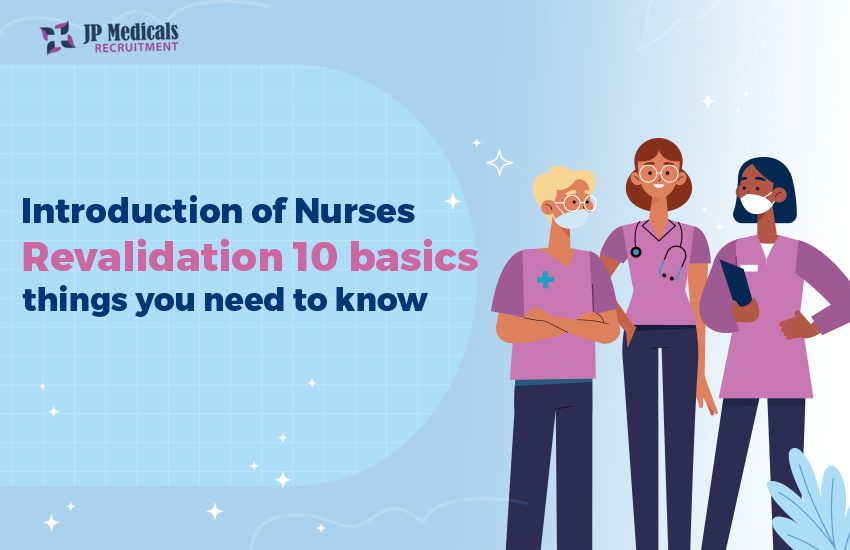Revalidation should be a familiar term if you are a registered nurse or a nursing associate. For those who don’t know anything about it or lack information, here are ten must-knows about revalidation. Keep a tab of our blogs section for timely insights.
What is revalidation?
The process by which every NHS registered nurse in the UK is required to validate their fitness to practice is revalidation. It’s a mechanism that’s used to ascertain the competence to continue the practice, with no errors. All this is to improve the quality of care, adhering to the best practices.
10 basic things nurses need to know about revalidation
Here are 10 fundamental things every nurse should know about revalidation. Understanding the requirements will help you prepare for the process better.
- Revalidation was introduced by the Nursing and Midwifery Council (NMC) in the year 2016.
- It is a straightforward process that helps all nurses and midwives demonstrate safe and effective practice.
- The main aim of revalidation is to ensure nurses possess consistent and high standards of Nursing care in the UK. It is made mandatory that every licensed NHS registered nurse in the UK should possess revalidation.
- Whether they work in the NHS, private sector, or full-time agency, nurses have to apply for revalidation once every three years in their chosen field of study to prove their fitness to the regulatory body by complying with the professional standards.
- The NMC validation’s application deadline is the first day of the month that your registration expires. For instance, if your validation expires on Dec 31st, 2021, then your application date and fees are to be submitted to the NMC by 1 Dec 2021.
- The nurses can check their revalidation date by logging into their unique NMC account, followed by entering the NMC pin number, fee expiry date, and expiry date.
- To apply for revalidation, nurses need not be in a permanent job. Even if they work for an agency, they will still be able to revalidate.
- Declaring the main employer to the NMC is a crucial step of revalidation. No matter if they are working in more than one setting, nurses have to decide on one main employer. The NMC will then obtain more information about your current employer, work setting, and scope of good practice. Here lies a tip for the agency staff. They can declare the places they most frequently work on shifts.
- For a successful revalidation and renewal of the NMC registration, nurses have to meet revalidation requirements, which include 450 hours of minimum total practice hours, 35 hours of CPD (Continuing Professional Development (CPD), 20 hours of in-person learning or training sessions, written reflective accounts, reflective discussion, confirmation, health, and character.
A pro tip to nurses: As NMC encourages, never fail to log each CPD event as and when you take it up. This will help make your revalidation process an easy one. Remember to log CPD that is relevant to your scope of practice.
- The process also requires pieces of feedback revalidation, good practice, public confidence, reflective accounts, reflective discussion, health and character declaration, and professional indemnity arrangement. It’s wise to jot all of these beforehand for a hassle-free validation process to happen.
To know more about NMC revalidation, look into the NMC Revalidation Guide. If you are a registered nurse or an agency nurse looking for revalidation, boost your chances with a trustworthy NHS recruitment agency like JP Medicals Recruitment. We are here to help you with critical care nurse jobs, locum recruitment agency manchester jobs, and other medical recruitment jobs that will help you score high in our revalidation process. Contact us now





